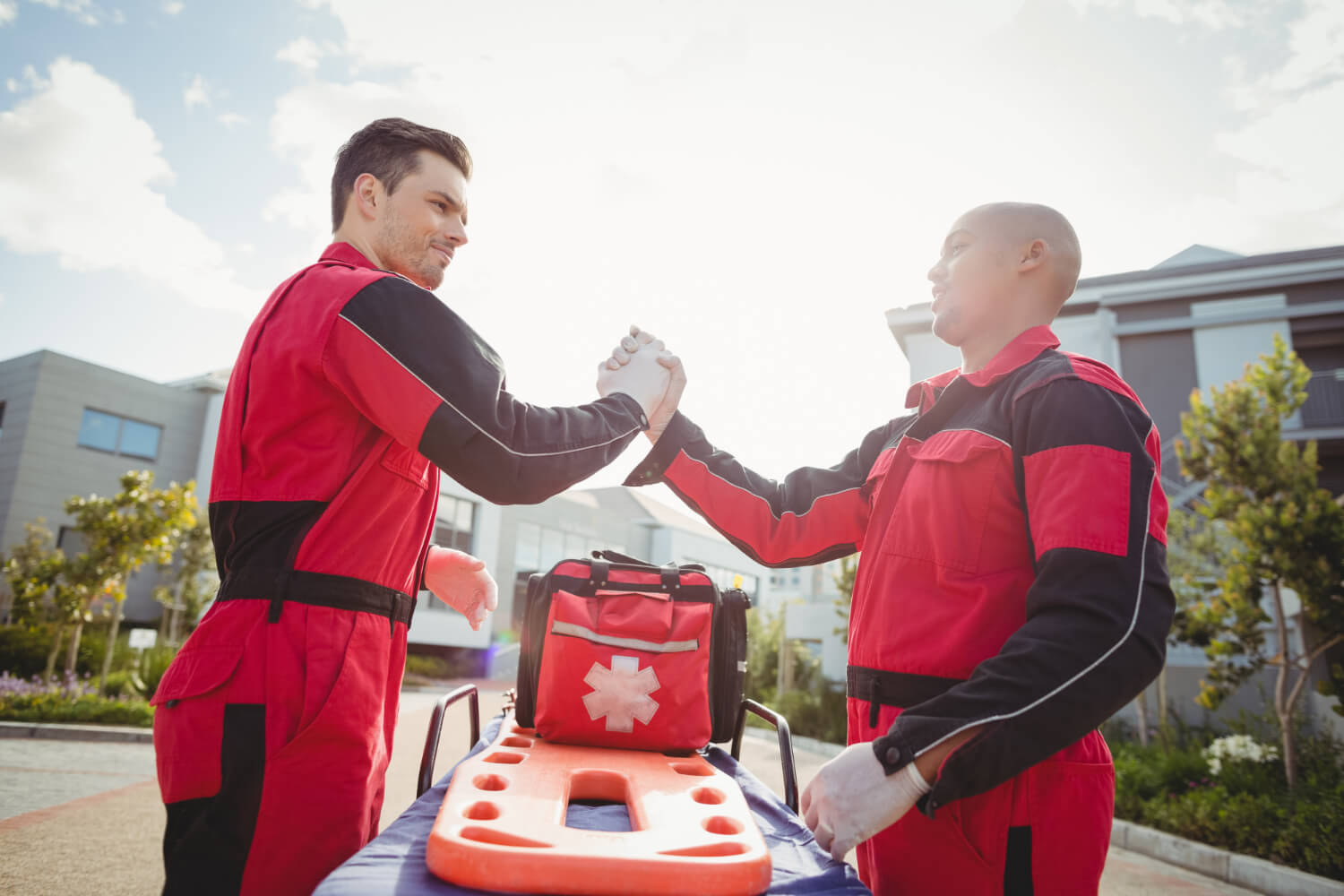
When it comes to CPR training, it’s not just about mastering the chest compressions and rescue breaths; it’s about being prepared to save lives. The American Heart Association (AHA) and the Red Cross are two heavyweight contenders in the CPR training arena, both with a mission to equip individuals with life-saving skills. But what sets these programs apart? Which one should you choose? In this article, we’ll dive into the AHA vs. Red Cross CPR training programs to unravel the differences, similarities, pros, and cons to help you make an informed decision that could make all the difference when the stakes are high.
Before we jump into the nitty-gritty, let’s get the lay of the land. The American Heart Association and the Red Cross, two revered organizations, offer CPR training programs that aim to empower everyday heroes with the knowledge and skills needed to respond effectively in cardiac emergencies.
The American Heart Association (AHA)
The AHA is like the grandmaster of heart health. They’ve been around since the days when neon leg warmers were considered fashionable, and they’ve been at the forefront of cardiovascular science and CPR guidelines. Their training programs are often viewed as the gold standard, and they’ve got the research to back it up. The AHA doesn’t mess around when it comes to teaching life-saving techniques.
The Red Cross
The Red Cross, on the other hand, is like that friendly neighbor who always has a helping hand to offer. They’ve got a long history of providing disaster relief and humanitarian aid, and their CPR training is an extension of that mission. The Red Cross CPR courses are comprehensive and widely recognized, making them a strong contender in the CPR training ring.
AHA: Precision and Science
The AHA is all about precision, and they’ve got the scientific research to back up their methods. Their training is structured around the latest CPR guidelines, and they leave no stone unturned when it comes to explaining the “why” behind each technique. If you’re the type who wants to know the mechanics of every compression and breath, the AHA program might be your jam. They aim to ensure that participants understand the rationale behind each step, creating a solid foundation for confident action.
Red Cross: Practical and Empathetic
The Red Cross brings a practical and empathetic approach to the table. They focus on building confidence through practice, emphasizing the importance of hands-on experience. Their goal is to make sure you’re ready to spring into action when it counts, and they do it with a friendly and supportive vibe. If you’re looking for a program that combines skill-building with a touch of human kindness, the Red Cross might be the way to go.
AHA: Comprehensive and Varied
The AHA offers a range of CPR courses, catering to different skill levels and needs. Whether you’re a healthcare professional, a new parent, or just someone who wants to be prepared, the AHA has a course for you. From basic CPR to advanced life support, their offerings cover a wide spectrum, ensuring that you can find the right fit.
Red Cross: Versatile and Accessible
The Red Cross also provides a variety of courses, and they’re known for their accessibility. You can often find Red Cross CPR classes in your local community centers or online. This makes it convenient for busy folks who might need to squeeze in the training between work and life. Their versatility in course formats makes them a popular choice.
AHA: Widely Recognized
The AHA certification carries weight. It’s recognized by many employers, healthcare institutions, and organizations. Having an AHA CPR certification on your resume can open doors and is often a requirement for certain healthcare positions. If you’re aiming for a career in healthcare, this recognition can be a significant advantage.
Red Cross: Respected and Accepted
The Red Cross certification is also well-respected. While it might not have the same level of specificity in certain healthcare fields, it’s widely accepted and valued by employers across various industries. If you’re looking for a certification that demonstrates your readiness to respond to emergencies, the Red Cross certification holds its ground.
Which CPR training program is better for healthcare professionals?
If you’re in the healthcare field and need specific certifications like BLS (Basic Life Support) or ACLS (Advanced Cardiovascular Life Support), the AHA courses are often the preferred choice due to their precise guidelines and recognized certification.
Are AHA courses more challenging than Red Cross courses?
The challenge level can vary based on the specific course you choose, but AHA courses are known for their detailed approach, which some individuals might find more challenging. Red Cross courses tend to focus on practical skills while still covering the essentials.
Can I use a Red Cross certification for my job in a healthcare setting?
It depends on the specific requirements of your job and your employer’s policies. Many employers accept Red Cross certification, especially for roles that require CPR readiness but don’t have strict AHA certification prerequisites.
In the epic AHA vs. Red Cross CPR training showdown, the winner depends on your individual needs and goals. If you’re after precision, scientific understanding, and career advancement in healthcare, the American Heart Association might be your champion. On the other hand, if you value practical experience, accessibility, and a well-rounded certification, the Red Cross has got your back.
Remember, the best CPR training program is the one that equips you with the confidence and skills to respond effectively in a cardiac emergency. So, choose wisely, and may you never need to use those skills, but if you do, you’ll be ready to save the day, whether you’re an AHA enthusiast or a Red Cross supporter!
Don’t wait for the unexpected; take action now to equip yourself with the skills to save lives. Contact CPR Classes Near Me today to learn more about our AHA vs. Red Cross CPR training programs.